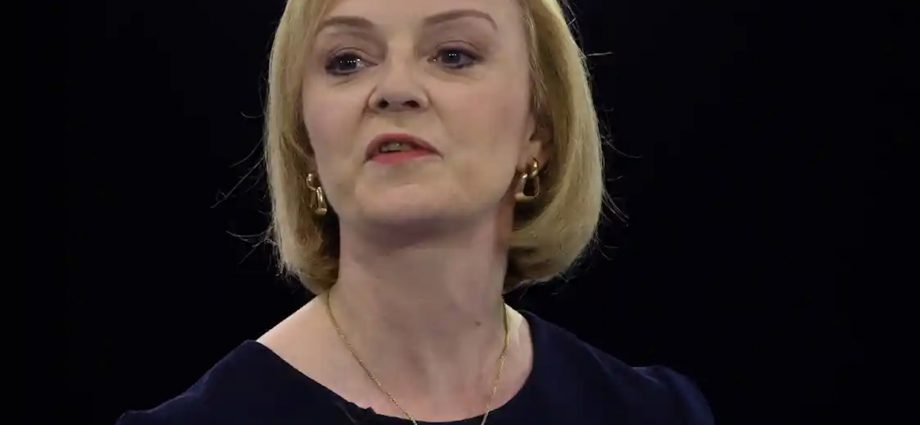On September 5, 2022, members of the United Kingdom’s Conservative Party chose the next prime minister. Liz Truss defeated her rival Rishi Sunak in a vote of 160,000 or so party members.
For years, China was a near irrelevance in UK politics. That changed when a range of crises raised China’s profile in a highly negative light in 2020.
These included fears that China was holding back the truth about Covid-19, concerns about Huawei providing key parts of the telecom network and mounting public anger over the Hong Kong National Security Law and political “re-education” camps in China’s Xinjiang province.
In 2020–21, the UK government undertook an Integrated Review of defense and foreign policy. The review advocated strong protections against threats from China, including espionage and hacking, but also outlined the potential for cooperation in areas such as trade and climate change.
During the leadership contest, Sunak moved first to declare that China was the “number one” threat facing the United Kingdom. He pledged to close the remaining 30 or so Confucius Institutes in the country — Chinese-sponsored language schools that are suspected by some of providing an entry point for Chinese propaganda.
In the last week of the contest, Truss upped the ante by announcing that she would change the verdict of the Integrated Review. Rather than treating China as a country with at least some areas of advantage for the United Kingdom, she would explicitly declare it as a threat, on par with Russia.
Despite the hawkish language, neither candidate laid out a precise China strategy. Discussions about China have so far only set a mood rather than expose the trade-offs that the United Kingdom will face if a firmer position towards China is adopted.
Truss’s position has upsides from a political point of view. But it also limits options — the previous position allowed the United Kingdom to take issues on their merits.

London could speak out about human rights abuses while also hosting COP26, a forum in which it was necessary to treat China as a respected guest. That will be harder to do if China, like Russia, is officially deemed a “threat.”
There is still some puzzlement on the right as to the precise details of Truss’s position. “Conservative Home”, a popular right-wing grassroots blog, published a piece suggesting that her rhetoric seems to lack a plan.
In the center-right Spectator magazine, well-connected journalist Cindy Yu reported that the Great Britain China Center (GBCC) may be about to lose the Foreign Office funding it has received for nearly half a century.
As a non-partisan, partly government-funded think tank on UK-China issues, the GBCC is a rarity in the United Kingdom.
At a time when the UK government needs to think more actively and critically about its China policy, it would be an odd moment to defund the only established UK organization equipped to do precisely that.
Fortunately, the China conundrum is a rare issue over which the United Kingdom is not polarized on political grounds. That is not to deny that there are divisions.
There is a divide between those who prioritize values and security and those who think that the United Kingdom post-Brexit needs to maintain a relationship with the world’s second-biggest economy.
But those divisions are not partisan — there are Conservatives on both sides. While Labour and the Liberal Democrats tend to prioritize values and security over economics, they will also need to present a post-Brexit economic story.
Prioritizing human rights and security is an admirable political choice and one that may be well received across the political spectrum in the aftermath of the United Nations’ highly critical report on human rights abuses in Xinjiang, published in September 2022.
But it requires an explicit strategy to decide the future of joint British–Chinese investments, such as Chinese investments in UK life sciences, luxury goods and legal services.
Longer-term questions will be pushed up the agenda if London takes a tougher China stance in the 2020s. The United Kingdom will have to work out where Taiwan sits on its list of priorities, and whether its new interest in developing a military presence in the Western Pacific extends to joining a US-led defense of the island’s autonomy in the event of a confrontation.

If the United Kingdom enters the Comprehensive and Progressive Agreement for Trans-Pacific Partnership (CPTPP) later this year, London will have to develop a stance on Beijing and Taipei’s applications.
It will also have to build relations with a new Labor government in Australia, whose foreign policy tone is very different from that of its Liberal (conservative) predecessor.
Perhaps the most intractable question will be whether the European Union will rally behind London’s new stance to form a united coalition against growing authoritarianism.
The China challenge sits on top of an overwhelming pile of issues, ranging from inflation to the Ukraine war, that will confront the United Kingdom’s new prime minister.
By defining China as a “threat”, the UK government will have to make clear what its relationship with Beijing will look like during the 2020s and beyond.
Rana Mitter is professor of the history and politics of modern China at the University of Oxford and author of China’s Good War (2020).
This article was first published by East Asia Forum, which is based out of the Crawford School of Public Policy within the College of Asia and the Pacific at the Australian National University. It is republished under a Creative Commons license.

